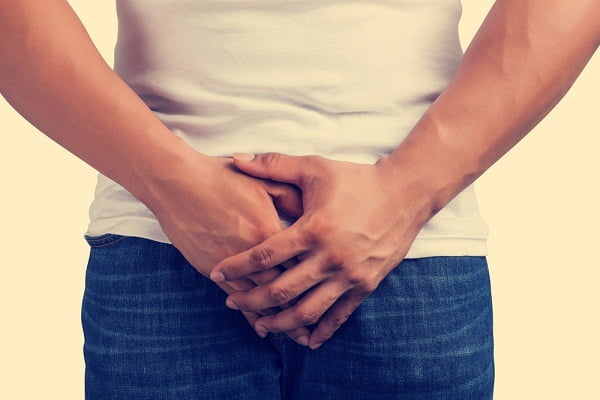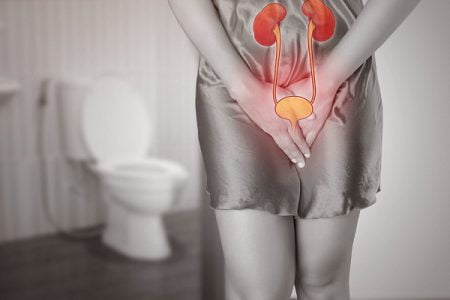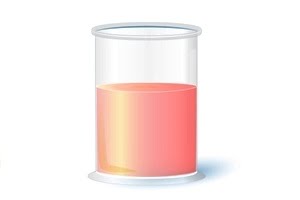Blood in Urine (Hematuria)
- Updated on: Jul 10, 2024
- 7 min Read
By
- Published on Sep 26, 2019


What is hematuria (blood in urine)?
Hematuria refers to a condition of red blood cells in the urine. This changes the color of the urine to red, pink, or cola. However, sometimes the color of urine remains the same. Red blood cells in the urine can come from:
- Kidney (where urine is made)
- The urinary tract along with its parts like the ureters (tubes to carry urine from the kidneys to the bladder), the bladder (where urine is stored), the prostate (in men), and the urethra (the tube that lets the urine out of the body)
Hematuria is not a life-threatening disease but it should not be ignored. It is also important to investigate the factors that cause hematuria (mostly caused by a serious condition).
What are the types of hematuria?
Hematuria is classified into two types:
- Gross hematuria, and
- Microscopic hematuria
What is gross hematuria?
In gross hematuria, the blood in the urine can be seen with the naked eye as the color of the urine changes to pink, red, purplish-red, brownish-red, or cola.
What is microscopic hematuria?
Microscopic hematuria means that the color of the urine does not change but when viewed under a microscope, an increased number of red blood cells can be seen clearly.
What are the symptoms of hematuria?
In most of the cases, blood in the urine (gross or microscopic) is the only symptom of the disorder. In others, the patient may experience a variety of symptoms, such as the following:
- Abdominal pain
- Decreased urinary force, hesitancy, incomplete voiding
- Fever
- Frequent urination (polyuria)
- Pain during urination (dysuria)
- Pain in the flank or side
- Urinary urgency
What are the causes of hematuria?
In hematuria, the kidneys or urinary tract organs allow blood cells to leak into the urine. This may be because of any disorder or problem. Some of these problems are discussed below:
Urinary tract infections
Bacteria enter the body through the urethra and multiply in the bladder causing urinary tract infections in the urinary tract. Symptoms of such urinary tract infections include a persistent urge to urinate, pain with urination, and urine with an extremely strong and foul smell.
Kidney infections (pyelonephritis)
Bacteria may enter the kidneys either from ureters or from the bloodstream. Signs and symptoms of bladder infections with fever and flank pain are seen in kidney infections.
A bladder or kidney stone
Stones are formed when the minerals in concentrated urine form crystals and stick to the walls of the kidneys or bladder. With time, the crystals become smaller and harder. Initially, there are no symptoms but with time these stones can cause irritation and abrasion of the urinary tract, leading to hematuria.
Enlarged prostate
As men approach middle age, the prostate gland often enlarges. An Enlarged prostate then compresses the urethra and blocks the urine flow partially which eventually leads to blood in urine.
Kidney disease
Glomerulonephritis is a type of kidney disease that causes an inflammation of the kidney and affects its filtering system leading to microscopic blood in urine.
Cancer
Kidney cancer, bladder cancer, or prostate cancer may result in visible bleeding in the urine.
Inherited disorders
Sickle cell anemia is a hereditary defect that affects hemoglobin in red blood cells. This disorder can cause blood in urine, both visible and microscopic hematuria. Alport syndrome is another example of an inherited disorder that affects the filtering mechanism of the kidneys.
Kidney injury
Blood may be seen in urine after a blow or other injury to the kidneys from an accident or sport.
Medications
Some medications may cause urinary bleeding including:
- Anti-cancer drug (cyclophosphamide)
- Penicillin
- Anticoagulant (aspirin and the blood thinner heparin)
Strenuous exercise
An intense workout may sometimes lead to urinary bleeding. Strenuous exercise may cause trauma to the bladder, dehydration, or the breakdown of red blood cells.
What are the risk factors for hematuria?
Almost anyone (including children and teens) can have red blood cells in their urine. Factors that increase the chance of getting the disease include:
Age
Men older than 50 years of age may experience an enlarged prostate gland. This can increase their likelihood of getting occasional hematuria.
Sex
Over half of all females suffer from UTI (urinary tract infection) at least once in their lifetime which increases their risk of getting the disease hematuria.
A recent infection
Kidney inflammation increases the chances of visible urinary blood in children.
Family history
If a person has a family history of kidney disease or kidney stones, he or she is more prone to urinary bleeding.
Certain medications
The use of specific medicines like aspirin, anti-inflammatory pain relievers, and some antibiotics makes the person more susceptible to urinary bleeding.
Strenuous exercise
Long-distance runners are more prone to exercise-induced urinary bleeding (sometimes called jogger’s hematuria. Anyone who works out continuously and strenuously can develop the symptoms of the disease.
How is hematuria diagnosed?
Hematuria is diagnosed through a series of procedures which include:
Medical History
Medical history helps the doctor to diagnose the cause of hematuria. In this process, the doctor may ask the patient about:
- A review of symptoms
- List of prescription and over-the-counter medications the patient has been taking
- Current and past medical conditions
Physical Exam
Following the medical history is a physical exam in which the doctor physically examines the patient. A healthcare professional:
- Taps on the abdomen and back
- Check for pain or tenderness in the bladder and kidney area
- Perform a digital rectal exam on a man to look for any prostate problems
- Perform a pelvic examination of a woman’s pelvis to know about the source of possible red blood cells in the urine
Urine tests
Urine tests are done to know about the cause of hematuria. This may include:
Urine cytology
Normally urine contains epithelial cells which shed from the urinary tract. Urine cytology evaluates this urinary sediment under a microscope.
Blood tests
Blood tests are done to look for any evidence of kidney or other diseases that may be responsible for hematuria.
CT scan
Computed tomography (CT scan) is done to examine the structure of the kidneys, ureters, and bladder. A dye is injected into a vein just before the test to highlight any possible abnormalities. Kidney stones or abnormalities of the kidneys, ureters, and bladder can be easily seen with a CT scan.
Kidney ultrasound
It is used as an alternative to CT scan because some people are allergic to the dye used in CT. Ultrasound uses sound waves and creates a picture of the kidney’s structure.
Cystoscopy
A small tube is inserted into the bladder through the urethra. The tube consists of a camera that shows the inner lining of the bladder. The healthcare professional examines the lining of the bladder and looks for any abnormalities. In the presence of any abnormalities, a biopsy of the abnormal tissue is done. A sample of tissue is taken and examined with a microscope to determine whether abnormal (cancerous) cells are present.
Kidney biopsy
A small piece of tissue from the kidney is removed and examined with a microscope for signs of kidney disease. This biopsy finds out any kidney disease if present that may have resulted in hematuria.
Magnetic resonance imaging (MRI)
MRI is used to take pictures of the patient’s internal organs and soft tissues without using X-rays. This test can help diagnose problems of internal organs (such as the bladder or kidney).
What are the treatment options for hematuria?
Treatment of hematuria depends on its causes and the reason for the bleeding. The treatment is done in the following ways:
When no cause is found
In cases where the cause of the hematuria remains unknown, repeated urinalyses are a reasonable option. Other tests like a blood test (to check kidney function) and a blood pressure check should be done as well.
Men over 50 should go for an annual prostate-specific antigen (PSA) blood test (which is done to diagnose prostate cancer).
When the cause is a urinary tract infection
The treatment for urinary tract infection might involve taking antibiotics. The following antibiotics are recommended to treat urinary tract infections:
- Trimethoprim or sulfamethoxazole (Bactrim or Septra)
- Cephalexin (Keflex)
- Ceftriaxone
- Fosfomycin (Monurol)
- Nitrofurantoin (Macrodantin, Macrobid)
Read about the treatment of urinary tract infections.
When the cause is an enlarged prostate
Medications are prescribed in this case to shrink an enlarged prostate. Some of the medications include:
- Alpha blockers like alfuzosin (Uroxatral), doxazosin (Cardura), silodosin (Rapaflo), tamsulosin (Flomax) and terazosin (Hytrin)
- 5-alpha reductase inhibitors such as dutasteride (Avodart) and finasteride (Proscar)
- A combination of alpha-blockers and 5-alpha reductase
When the cause is a kidney or bladder stone
The stones in the kidney and bladder can be treated in the following ways:
- Sound waves are used to break the stones
- Surgery is done to remove the stones
How can Blood in urine (hematuria) be prevented?
Hematuria can be prevented if the underlying causes are presented first. To prevent infections one should:
- Drink plenty of water daily
- Avoid holding the urge to urinate
- Urinate after every sexual intercourse
- Practice good hygiene
To prevent stones one should:
- Drink plenty of water
- Avoid excess salt
- Regulate protein and oxalate intake
To prevent bladder cancer one should:
- Refrain from smoking
- Limit exposure to chemicals
- Drink plenty of water
To prevent kidney cancer, one should:
- Quit smoking
- Stay hydrated
- Avoid chemicals
- Eat a healthy and balanced diet
- Try to be active and maintain a healthy weight
How to cure hematuria naturally?
There are plenty of home remedies that can help to naturally treat hematuria. Some of these home remedies are:
- Drinking lots of fluid and staying hydrated
- Drinking cranberry juice
- Drinking the combination of spinach juice and coconut water
- Eating bitter gourd regularly
- Drinking pomegranate juice
- Consuming foods that are high in vitamin C
What are the complications of hematuria?
Complications of hematuria also depend on the underlying causes which include:
- Ignoring cancer can lead to an advancement of the tumors that are no longer treatable.
- Untreated infections can eventually lead to chronic kidney disease and eventually kidney failure.
- Ignoring the enlarged prostate may lead to a need to urinate frequently, severe pain, and even prostate cancer if left untreated for a longer time.
- Untreated stones can be very painful.
FAQs
Is blood in urine always a cause for concern?
While it can indicate a range of conditions, not all cases of hematuria are serious. Some may be due to benign causes like urinary tract infections, but evaluation by a healthcare provider is crucial.
Can strenuous exercise cause temporary hematuria?
Yes, intense physical activity can sometimes lead to exercise-induced hematuria. However, persistent or recurrent cases warrant medical attention to rule out underlying issues.
Are there lifestyle changes that can help prevent hematuria?
Maintaining good hydration and practicing safe hygiene habits can reduce the risk of urinary tract infections, a common cause of hematuria. Regular check-ups with a healthcare provider also contribute to prevention.
Can medications cause hematuria?
Some medications, such as blood thinners or certain antibiotics, can contribute to hematuria. Inform your healthcare provider about all medications to help determine the cause.
How is the cause of hematuria diagnosed?
Diagnosis involves a combination of medical history, physical examination, and diagnostic tests, including urinalysis and imaging studies. Identifying the underlying cause is crucial for appropriate treatment.












